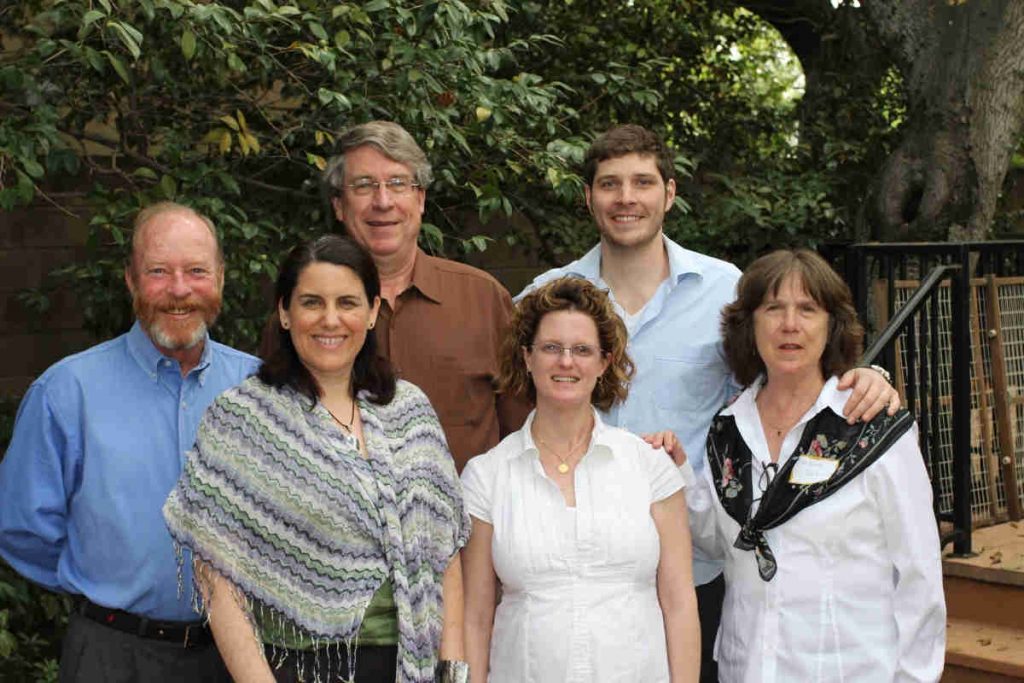Our History
Our vision is an engaged community where all needs are met. Our mission is to bridge communities by matching the professional talents of volunteers with the needs of community-based nonprofit organizations to promote community development, strengthen social services, and enrich the lives of volunteers.

JRP builds bridges between communities by providing needed professional or technical expertise to community organizations. We collaborate with local nonprofits to define their strategic and operational needs and recruit volunteers to fill those needs. We outline a clear project from beginning to end, and coordinate each resulting capacity-building effort, including evaluation of the impact of each project.
Jericho Road Pasadena was spearheaded by members of Neighborhood Unitarian Universalist Church of Pasadena. In partnership with the Flintridge Center, these members investigated whether there was a need in the local nonprofit community for the services offered. When the answer was a clear “Yes,” local volunteers began raising operating funds and creating its structure. In May 2010, we officially opened our doors. We have received generous funding from the Annenberg Foundation, The Ralph M. Parsons Foundation, the Rose Hills Foundation, the Weingart Foundation, and other foundation, individual, and corporate donors.
Organizational Values
Jericho Road Pasadena’s protocols and procedures cultivate a climate of mutual respect between our volunteers and clients.
We do not confuse our professional skills and expertise with being an expert on our clients or client communities. That is the nonprofits’ expertise, and we respect their contributions to the process.
Our two-way bridge between nonprofits and volunteers helps people on both sides learn about each other, share what they have learned, and break stereotypes in the process.
When volunteers experience the strengths and richness in the lives of the people they are helping, they have the chance to experience the deeper truth of our shared humanity. As more people within a community acquire this deeper truth on a personal level, we have the potential to transform our community.
Operating Principles
Pragmatism. From paperwork to the work itself, we strive to be efficient and to be product-, not process-, oriented. Our purpose is to strengthen the nonprofits and community benefit organizations we serve, which are likely to be resource-scarce organizations in need of practical guidance and expertise.
Accountability. In our attempt to create new expectations for what it means to engage in professional relationships in the absence of money–the traditional catalyst for accountability—we bring our workplace standards of professionalism to our volunteer projects. Similarly, we expect our clients to do their part to further the work. We are a high expectations organization and believe this approach attracts and retains more volunteers and clients. Both volunteers and clients assess each project at the end and in a later follow-up assessment to ensure that JRP has a long-term impact on our nonprofit clients’ mission and sustainability.
Serving Our Community
Beautiful Pasadena is very much its own city. Part of the larger Los Angeles metropolitan area, and home to 145,000 residents, Pasadena plays host to the Rose Bowl and Rose Parade every New Year’s Day. Its diverse population includes large groups of African-American and Latino residents, and a quickly growing Asian population. Thirty-three percent of residents were born outside the US, and 45% speak a language other than English at home.

Pasadena is also a city full of dichotomies. There is vast wealth and systemic poverty. Exclusive private schools exist alongside under-resourced public schools. The northwest sector of Pasadena is a particularly underserved, low-income area.
According to GuideStar, Pasadena has over 1,800 nonprofit organizations which address the many and varied needs of community members, from the aging population, children and youth (including the underserved), the homeless, and the unemployed. Nonprofits also support healthcare needs, the arts and culture, and the environment.
